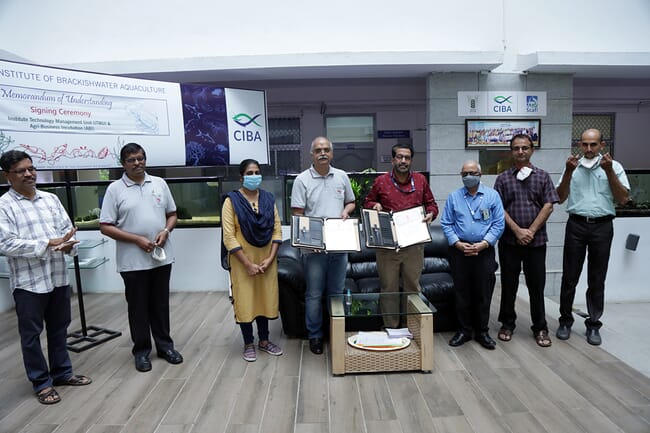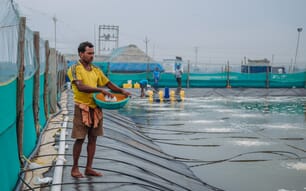
Scientists in India have developed a bacteriophage-based product to help control bacterial diseases in shrimp hatcheries.
At a time when bacterial disease is posing a major threat to shrimp seed production, the ICAR-Central Institute of Brackishwater Aquaculture (CIBA) has developed a prophylactic alternative to antibiotics, based on bacteriophages. These are viruses that kill only specific disease-causing bacteria and act as therapeutic agents in controlling bacterial infections. Unlike antibiotics, bacteriophage therapy has no residual issues and has advantages of being specific to their host bacteria, without harming other micro-organisms.
“In aquaculture hatcheries, bacterial diseases like vibriosis often cause considerable economic loss to hatchery operators across the globe. CIBA's new product will be of great use in preventing and controlling such diseases in aquaculture, especially in shrimp hatcheries,” said Dr SV Alavandi, principal scientist and head of aquatic animal health and environment division of CIBA which developed the new-gen technology.
“A broad spectrum of lytic bacteriophages from aquaculture systems and coastal ecosystems of India were used for the formulation of the product which was proved its efficacy in field evaluation trials,” he said.
Bacteriophages and their lytic enzymes are in use for therapy of bacterial infections in human and animals, as biocontrol agents for food protection also as tools in molecular biology.
Referring to the novelty of the technology, CIBA Director Dr KK Vijayan said the product comprises of a “cocktail of phages” which can neutralise a wide range of pathogenic bacteria-causing diseases and is helpful in replacing the use of antibiotics which can both leave residues and compound antimicrobial resistance.
In order to advance the commercialisation of the product, CIBA has signed an memorandum of understanding with Salem Microbes. Dr Vijayan said that industrial partnership is crucial in promoting the technology among the shrimp farming community. The CIBA director emphasised the need for increased collaboration between research institutions and the industrial players to bring out novel technology to the stakeholders for sustainable development of brackishwater aquaculture in the country.
Ramesh Kumar Dhanakoti, CEO of Salem Microbes, said his company is keen to partnering with CIBA in scaling up phage technology for the benefit of the aquaculture sector. The company focuses on exploitation of microbes for improved farming productivity and environmental quality.
Dr PK Patil, principal scientist at the technology management unit of CIBA, facilitated the transfer of technology and filing of patent.


